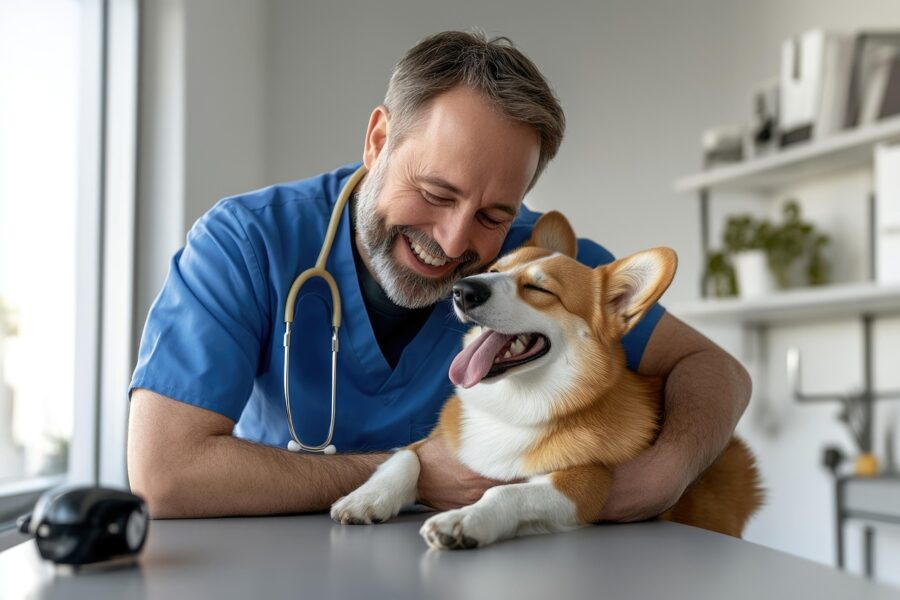The Foundation of Veterinary Excellence in Modern Britain
The United Kingdom has established itself as one of the most attractive destinations for veterinary professionals worldwide, offering exceptional career opportunities, robust professional development frameworks, and an enviable quality of life that sets it apart from other nations. As the veterinary sector continues to evolve at an unprecedented pace, the skills required to thrive in this dynamic environment have expanded far beyond traditional clinical competencies.
Today’s successful veterinarians must navigate a complex landscape that encompasses:
- Advanced medical knowledge and clinical expertise
- Sophisticated business acumen and commercial awareness
- Emotional intelligence and interpersonal capabilities
- Digital literacy and technological adaptability
- Collaborative teamwork and communication skills
Each of these domains plays a crucial role in shaping the modern veterinary professional, creating practitioners who can respond effectively to the multifaceted demands of contemporary practice. The current hiring trends within the veterinary profession reflect this shift, with recruitment processes increasingly focused on identifying candidates who demonstrate a comprehensive skill set that extends well beyond their veterinary degree. Talent acquisition specialists across the UK are actively seeking professionals who can adapt to changing client expectations, embrace technological innovations, and contribute to collaborative team environments whilst maintaining the highest standards of animal welfare. These evolving expectations reflect a broader transformation within the profession, where success depends upon balancing technical excellence with interpersonal competence and commercial understanding.
This article explores the essential competencies that every veterinary professional needs to cultivate to build a rewarding and sustainable career in the UK’s thriving veterinary sector, examining both the technical and interpersonal skills that distinguish exceptional practitioners from their peers.
Clinical Excellence and Lifelong Learning
The cornerstone of any successful veterinary career remains unwavering clinical competence, yet the definition of excellence in this field has evolved considerably over recent years. Modern veterinary practice demands not merely proficiency in fundamental procedures but a commitment to continuous professional development that keeps pace with rapidly advancing medical knowledge and technological capabilities.
Clinical excellence in contemporary veterinary practice encompasses:
- Mastery of fundamental veterinary procedures and techniques
- Proficiency in emerging treatment modalities and diagnostic methods
- Thorough understanding of evolving best practices in animal healthcare
- Steadfast commitment to evidence-based veterinary medicine
- Professional wisdom to recognise personal limitations and make appropriate referral decisions when specialist expertise would better serve the patient’s interests
Veterinary professionals working across the UK must stay abreast of emerging treatment modalities, novel diagnostic techniques, and evolving best practices that shape contemporary animal healthcare. This commitment to lifelong learning extends beyond mandatory continuing professional development requirements, encompassing a genuine curiosity about veterinary science and a proactive approach to expanding one’s knowledge base.
Successful veterinarians demonstrate their commitment to continuous learning through:
- Regularly attending industry conferences and specialist seminars
- Participating in advanced training programmes
- Engaging meaningfully with peer-reviewed veterinary literature
- Actively seeking mentorship opportunities that challenge existing understanding
- Pursuing specialist qualifications and certifications that deepen their expertise
- Collaborating generously with colleagues to share knowledge and insights
This continuous learning approach creates professionals who remain at the forefront of their field throughout their careers.
The practical application of clinical knowledge requires sophisticated problem-solving abilities and critical thinking skills that enable veterinarians to make sound judgements under pressure. Every consultation presents unique challenges that demand careful assessment, differential diagnosis, and treatment planning tailored to individual circumstances. The ability to synthesise information from multiple sources, recognise patterns, and make evidence-based decisions distinguishes competent practitioners from truly exceptional ones. Furthermore, clinical excellence encompasses knowing one’s limitations and recognising when specialist referral serves the
patient’s best interests. This professional humility, combined with strong clinical foundations, creates practitioners who consistently deliver optimal outcomes for their patients whilst maintaining realistic expectations about their own scope of practice.
Communication and Client Relationship Management
Perhaps no skill proves more crucial to long-term veterinary success than the ability to communicate effectively with clients, colleagues, and other stakeholders within the animal healthcare ecosystem. The modern veterinary consultation extends far beyond examining animals and prescribing treatments; it involves building trusting relationships with clients, understanding their concerns and constraints, and collaborating to develop care plans that align with both medical best practices and practical realities.
Essential communication competencies span a wide range of interpersonal skills:
- Translating complex medical concepts into accessible language that clients can readily understand
- Practising active listening and empathetic engagement with client concerns
- Demonstrating genuine care for both the animal and the human-animal bond
- Delivering difficult diagnoses with compassion and sensitivity
- Explaining treatment options with clarity and comprehensiveness
- Managing client expectations realistically and professionally
- Handling complaints and difficult conversations constructively
Veterinary professionals must master the art of translating complex medical concepts into accessible language that empowers clients to make informed decisions about their animals’ care. This communication extends across various contexts, from delivering difficult diagnoses with empathy and compassion to explaining preventative care recommendations in ways that motivate compliance.
The recruitment landscape increasingly prioritises candidates who demonstrate exceptional interpersonal skills, recognising that technical competence alone cannot guarantee practice success or client satisfaction. Hiring trends across the UK veterinary sector reflect a growing awareness that client communication directly impacts:
- Clinical outcomes and treatment success rates
- Practice reputation and community standing
- Business sustainability and financial performance
- Client retention and loyalty
- Team morale and workplace culture
These interconnected effects demonstrate why communication skills have become such a critical component of veterinary excellence.
Veterinarians who excel in this domain actively listen to client concerns, validate emotions, and create collaborative partnerships that enhance treatment adherence and long-term client retention. These professionals understand that every interaction represents an opportunity to strengthen the veterinary-client relationship and reinforce the value of professional veterinary care. Moreover, effective communication extends to interactions with veterinary nurses, support staff, and colleagues, fostering collaborative team environments where information flows freely and collective expertise enhances patient care.
Business Awareness and Practice Management
The contemporary veterinary profession demands a level of business acumen that previous generations rarely required, as economic pressures and evolving practice models reshape the industry landscape. Successful veterinarians must understand the financial realities underpinning veterinary practice, including the costs associated with delivering high-quality care, the importance of appropriate fee structures, and the economic sustainability that enables practices to invest in equipment, training, and staff development.
Core business competencies for modern veterinarians include:
- Understanding practice economics and financial fundamentals
- Recognising the true costs of delivering veterinary services
- Appreciating the importance of appropriate pricing structures that reflect the value
provided - Grasping inventory management and stock control principles
- Understanding client retention and acquisition strategies
- Recognising key performance indicators and practice metrics that drive sustainable success
These commercial capabilities complement rather than compromise clinical excellence.
This business awareness need not compromise professional ethics or patient welfare; rather, it ensures that veterinary services remain viable and accessible to the communities they serve. Veterinary professionals who grasp these economic fundamentals make more informed decisions about resource allocation, treatment recommendations, and practice development initiatives that benefit all stakeholders.
Talent acquisition processes increasingly seek candidates who demonstrate commercial awareness and an understanding of how their clinical decisions impact practice performance. This shift reflects the reality that modern veterinary practice operates within competitive markets where financial sustainability enables continued investment in clinical excellence.
Veterinarians who develop business skills position themselves for:
- Leadership opportunities within their practices
- Career advancement beyond purely clinical roles
- Potential practice ownership or partnership opportunities
- Strategic planning and development responsibilities
- Enhanced contribution to practice success and growth whilst maintaining their core focus on animal welfare
These expanded capabilities create professionals who can influence practice direction and help shape the future of veterinary care delivery.
Understanding key performance indicators, inventory management, client retention strategies, and operational efficiency creates professionals who contribute meaningfully to practice success whilst maintaining their primary focus on animal welfare. These skills prove particularly valuable as veterinary professionals progress through their careers and assume positions with greater responsibility for practice direction and strategic planning.
Emotional Resilience and Work-Life Balance
The demanding nature of veterinary work necessitates robust emotional resilience and proactive strategies for maintaining psychological wellbeing throughout one’s career. Veterinary professionals regularly encounter challenging situations that test their emotional reserves, from managing difficult client interactions to making end-of-life decisions and coping with unexpected patient outcomes.
Common challenges requiring emotional resilience include:
- Managing euthanasia and end-of-life decisions
- Coping with unexpected patient deaths or poor outcomes
- Handling emotionally charged client interactions
- Dealing with financial constraints that affect treatment options
- Processing cases of animal neglect or abuse
- Managing heavy workloads and time pressures
- Balancing compassion with appropriate professional boundaries
Each of these situations demands emotional strength and the ability to maintain perspective amidst difficult circumstances.
The ability to process these experiences healthily, maintain professional boundaries, and seek support when needed distinguishes sustainable careers from those that end prematurely due to burnout or compassion fatigue. Successful veterinarians recognise that caring for their own mental health enables them to provide better care for their patients and creates more positive experiences for clients and colleagues alike.
Effective strategies for maintaining wellbeing include:
- Developing strong support networks within and beyond the profession
- Engaging in regular supervision or peer support arrangements
- Practising mindfulness and stress management techniques
- Maintaining clear boundaries between work and personal life
- Seeking professional support when facing difficulties
- Cultivating interests and relationships outside veterinary work
These practices provide necessary perspective and renewal, helping veterinarians maintain the passion and dedication that initially drew them to the profession.
Work-life balance in veterinary medicine represents an ongoing challenge that requires conscious effort and strategic planning. The UK veterinary sector has made significant progress in addressing the profession’s historically demanding work patterns, with many practices now offering more flexible scheduling options, improved out-of-hours arrangements, and supportive workplace cultures that prioritise staff wellbeing. Veterinary professionals who actively cultivate interests outside their work, maintain strong personal relationships, and establish clear boundaries between professional and personal time create more sustainable career trajectories. This balance proves essential not merely for personal happiness but for professional longevity and the ability to maintain the enthusiasm and compassion that drew many individuals to veterinary medicine initially. Recruitment processes increasingly recognise the importance of cultural fit and workplace environment, with forward-thinking practices highlighting their commitment to staff wellbeing as a key differentiator in competitive talent acquisition markets.
Embracing the Future of Veterinary Practice
The veterinary profession stands at an exciting crossroads where technological innovation, evolving client expectations, and changing workforce dynamics converge to create unprecedented opportunities for those equipped with the right skills.
Emerging trends shaping veterinary practice include:
- Telemedicine and remote consultation capabilities, which enable veterinarians to provide guidance and support beyond traditional clinic settings
- Artificial intelligence-assisted diagnostics and decision support systems enhancing clinical accuracy
- Advanced imaging modalities and diagnostic technologies providing unprecedented insights into animal health
- Digital health records and practice management systems streamlining operations
- Online client communication and education platforms strengthening the veterinary-client relationship
- Wearable technology and remote patient monitoring extending care into the home environment
- Evidence-based medicine and data-driven decision making continuing to elevate clinical standards across the profession
Emerging technologies such as telemedicine, artificial intelligence-assisted diagnostics, and advanced imaging modalities will continue transforming how veterinary care is delivered, requiring professionals who embrace innovation whilst maintaining the compassionate, relationship-centred approach that defines excellent veterinary medicine. The UK’s position as a global leader in veterinary education and practice creates exceptional opportunities for professionals who cultivate diverse skill sets that extend beyond traditional clinical boundaries.
For veterinary professionals seeking to build rewarding careers in the UK, the path forward requires:
- Balancing technical excellence with interpersonal skills
- Combining business awareness with ethical practice
- Integrating professional dedication with personal wellbeing
- Embracing lifelong learning and continuous development
- Maintaining adaptability in the face of change
- Cultivating emotional intelligence alongside clinical competence
These interwoven capabilities create professionals who can navigate the complexities of modern veterinary practice whilst maintaining their core commitment to animal welfare. Those who successfully navigate this balance will find themselves well-positioned to thrive in a profession that offers profound personal satisfaction alongside genuine opportunities to make meaningful differences in animal welfare and public health. The future belongs to adaptable, emotionally intelligent veterinarians who view their careers as ongoing journeys of growth and development rather than static destinations. By consciously developing the essential skills outlined throughout this article, veterinary professionals can build sustainable, fulfilling careers whilst contributing to the continued advancement of this noble profession across the United Kingdom. The real question isn’t whether your job has challenges (it definitely will), but whether those challenges are helping you grow or holding you back.
Red Flags: When Your First Job Isn’t Working
Your Skills Aren’t Developing
Veterinary medicine moves fast, with new treatments and diagnostic tools appearing all the time. If your workplace seems stuck in the past or your clients consistently say no to recommended treatments, you might find your development stalling. As a new graduate, you need exposure to varied cases and current approaches to build both confidence and competence.
Patient Care Standards Are Slipping
Nothing knocks your confidence quite like working somewhere where you can’t rely on your colleagues to maintain proper standards. If you’re worried about the quality of care other team members provide, or you can’t trust them to follow through properly, that’s a problem. Your professional reputation is still being built – you need solid mentorship and reliable teamwork during these crucial early years.
The Workplace Culture Is Toxic
Unfortunately, some veterinary workplaces have seriously negative cultures filled with constant criticism, drama, or colleagues who undermine each other. For someone new to the profession, this can be particularly damaging, making you doubt your abilities and decisions when you’re still finding your feet. You need to feel psychologically safe to learn and grow – if that’s missing, it’s worth considering your options.
You’re Burning Out Already
If you consistently dread going to work, you’re experiencing stress-related physical symptoms, or you’re losing your love for veterinary medicine itself, these could be warning signs that your current situation isn’t sustainable. Early career burnout can seriously affect how you feel about the profession for years to come.
Green Flags: When It’s Worth Staying Put
Not every workplace challenge means you should pack up and leave. Some signs suggest your current position offers a solid foundation for growth:
- You’re getting useful feedback and proper mentorship
- You’re seeing diverse cases and having good learning experiences
- Your colleagues genuinely want to help you develop
- There are clear ways to advance your skills and take on more responsibility
- Management actually listens when you raise concerns
If these things are happening, it might be worth sticking it out through temporary frustrations while you build your professional foundation.
Your Skills Are in High Demand
Here’s some good news if you’re thinking about making a change: veterinary professionals are seriously in demand right now. Recent data shows incredibly favourable job market conditions, with multiple positions available for every job seeker across all veterinary roles. This pattern seems consistent internationally too, which means there are genuine opportunities out there for those ready to make a move.
This demand means you have options. You don’t need to stay somewhere that’s compromising your development or wellbeing just because you’re grateful to have got that first job.
Smart Ways to Make Your Next Move
If you’ve decided that change is needed, here are some approaches to consider:
Relief/Locum Work: This gives you some breathing room while letting you experience different practice environments. You’ll quickly learn what works for you professionally while keeping the income flowing and building varied experience.
Be Selective: Rather than jumping at the first opportunity that comes up, use what you’ve learned from your first job to identify what you actually want in a workplace. Being choosy leads to much better long-term satisfaction.
Focus on Development: Look specifically for positions that actively support continuing education, mentorship, and skill building.
Moving Forward with Confidence
About 23% of veterinary employees change jobs each year, so you’re definitely not alone if you decide to look elsewhere. Moving between positions in veterinary medicine is both common and completely acceptable professionally.
Remember that being loyal to your profession includes being loyal to your own development. If your current workplace isn’t supporting your growth as a veterinary professional, seeking change shows professional maturity, not disloyalty.
Your veterinary qualifications represent a massive personal investment and years of dedication. You deserve a professional environment that helps you keep developing and maintains your enthusiasm for this genuinely rewarding field.
Ready to explore what’s out there? Register here or contact us today – we specialise in connecting vets with jobs that work for them.

